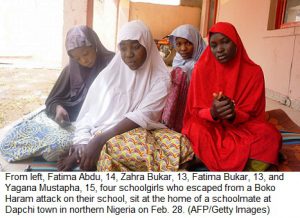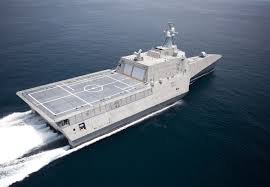“A Day which will ‘Live in Infamy'” – US President Franklin D. Roosevelt, December 8, 1941, Declaration of War at the Joint Session of Congress lamenting the December 7, 1941 Japanese Attack on Pearl Harbor.
While the US President was referring to December 7, August 6 has become an even BIGGER ‘Day of Infamy’. This is the date in 1945 that the Atomic Bomb was detonated on Hiroshima, Japan. At that point only the USA had any Atomic/Hydrogen/Nuclear bombs. Today that number is 10, with fears that more “Rogue Nations” can get their hands on one.
This is the “Sum of All Our Fears”!
This fear was communicated in a previous blog-commentary from August 6, 2015. This is still a current fear, especially on the heels of Iran and North Korea Nuclear ambitions that are prominent in the news today.
Today, August 6, is a perfect time to Encore that previous blog-commentary as it is the 73rd Anniversary of the Hiroshima blast. See that Encore here-now:
————————————–
Go Lean Commentary – Sum of All Fears – ‘On Guard’ Against Deadly Threats
It’s time for some serious talk:
There are people out there that would like to kill us, and destroy our way of life.
Doubtful? Consider ISIS, Al Qaeda or Boko Haram!
These groups are Terrorist organizations, and they are committed, even at the risk of their own lives to carry out what they consider “a sacred service to their God”. (This aligns with the Bible at John 16:2 – “the time cometh that whosoever killeth you will think that he doeth God service” – KJV).
From the Caribbean perspective, this is a scary proposition. This also considers that the people, institutions of the Caribbean may not be the Terrorists’ target; they are really at enmity with the United States, not the Caribbean.
The US has a massive security apparatus, with huge budgets, systems, hardware (ships, submarines, fighter jets, satellites, etc.) and military personnel; the largest in the world. These enemies may not be able to get to their ideal target, the American homeland, but will settle with successful attacks against its bordering neighbors, allies and defenseless island territories (Puerto Rico, and/or the US Virgin Islands).
God forbid, they may get their hands on nuclear materials and detonate a “dirty bomb” on our Caribbean homeland.
This is the sum of all our fears!
This title, “Sum of All Fears”, comes from a quote by the late British Prime Minister Winston Churchill, quoted as follows:
Why, you may take the most gallant sailor, the most intrepid airman or the most audacious soldier, put them at a table together – what do you get? The sum of their fears.
In the modern lexicon however, the title draws reference to the movie based on the novel of the same name. These works of fiction portray a scenario where a nuclear bomb is exploded on US soil at a celebrated American football game. The movie truly depicted an ominous scenario. See the movie trailer here:
VIDEO – Sum of All Fears (2002) – Movie Trailer – https://youtu.be/p4Y-0Pun2Eg
Published on Feb 22, 2013 – CIA analyst Jack Ryan must thwart the plans of a terrorist faction that threatens to induce a catastrophic conflict between the United States and Russia’s newly elected president by detonating a nuclear weapon at a football game in Baltimore.
Alternate Synopsis: When the president of Russia suddenly dies, a man whose politics are virtually unknown succeeds him. The change in political leaders sparks paranoia among American CIA officials, so CIA director Bill Cabot recruits a young analyst to supply insight and advice on the situation. Then the unthinkable happens: a nuclear bomb explodes in a U.S. city, and America is quick to blame the Russians.
Life imitating art; art imitating life.
Atomic bombs have been detonated before … twice, in World War II against Japan on the cities of Hiroshima and Nagasaki. (Today, August 6, is the exact 70th Anniversary of the Hiroshima detonation).
No one can therefore claim that this fear of an atomic, hydrogen or nuclear bomb is far-fetched.
This consideration is presented in conjunction to mitigations and remediation for protecting the Caribbean homeland. The assertion in the book Go Lean … Caribbean (Page 23) is that with the emergence of new economic engines, “bad actors” will also emerge thereafter to exploit the opportunities, with good, bad and evil intent. The book warns that this “bad actor” emergence is a historical fact; it is not inconceivable that it can be repeated, even on the Caribbean homeland.
This is the sum of our fears!
This point is pronounced early in the book with the Declaration of Interdependence (Page 12) that claims:
x. Whereas we are surrounded and allied to nations of larger proportions in land mass, populations, and treasuries, elements in their societies may have ill-intent in their pursuits, at the expense of the safety and security of our citizens. We must therefore appoint “new guards” to ensure our public safety and threats against our society, both domestic and foreign. The Federation must employ the latest advances and best practices … to assuage continuous threats against public safety.
xii. Whereas the legacy in recent times in individual states may be that of ineffectual governance with no redress to higher authority, the accedence of this Federation will ensure accountability and escalation of the human and civil rights of the people for good governance, justice assurances, due process and the rule of law. As such, any threats of a “failed state” status for any member state must enact emergency measures on behalf of the Federation to protect the human, civil and property rights of the citizens, residents, allies, trading partners, and visitors of the affected member state and the Federation as a whole.
xvi. Whereas security of our homeland is inextricably linked to prosperity of the homeland, the economic and security interest of the region needs to be aligned under the same governance. Since economic crimes, including piracy and other forms of terrorism, can imperil the functioning of the wheels of commerce for all the citizenry, the accedence of this Federation must equip the security apparatus with the tools and techniques for predictive and proactive interdictions.
The Go Lean book serves as a roadmap for the introduction and implementation of the technocratic Caribbean Union Trade Federation (CU). The branding Trade connotes economics, but the roadmap also addresses Homeland Security. Thusly, ascending the CU treaty would also enact a Defense Pact for the region’s security interest. Therefore the Go Lean roadmap has these 3 prime directives:
- Optimization of the economic engines in order to grow the regional economy and create new jobs.
- Establishment of a security apparatus to protect the resultant economic engines and the Caribbean homeland.
- Improvement of Caribbean governance to support these engines.
This structure heeds the pleas of the foregoing Declaration of Interdependence. The Caribbean appointing “new guards”, or a security pact to ensure public safety includes many strategies, tactics and implementations considered “best-practices”. We must be on a constant vigil against the eventual emergence of a “bad actor” that would be the “sum of our fears”. This indicates being pro-active in monitoring, mitigating and managing risks. The Go Lean book describes an organization structure with Intelligence Gathering and Analysis, a robust Emergency Management functionality, plus the Unified Command and Control for Caribbean Disaster Response, anti-crime and military preparedness.
This type of initiative was attempted before. Some Caribbean region member-states came together, starting in 1982, to establish the Regional Security System (RSS); it is an international accord for the defense and security of the eastern Caribbean region. The CU/Go Lean roadmap “stands on the shoulders” of that nascent beginning and extends the vision further with a Status of Forces Agreement (SOFA) embedded in the treaty to create the CU Trade Federation. It is past time now for some real assurances. The world has become a scarier place. The threat of an unknown, non-state-sponsored enemy, terrorism is real. The World Trade Center/Pentagon attack on September 11, 2001 was an undeniable game-changer. But in a recent blog/commentary, it was reported that 17 recent terrorist attacks against the American homeland was cited for this decade alone, since 2010.
The CU Homeland Security Pact would roll the charters of the RSS and other regional efforts, such as:
- Caribbean Disaster Emergency Management Agency
- CariCom’s Implementation Agency for Crime and Security (IMPACS)
- Caribbean Basin Security Initiative (CBSI)
… into one consolidated apparatus, the SOFA, thusly creating one entity, under a Commander-in-Chief would be “on guard” 24-7-365 for real or perceived threats.
The CU‘s requirement for the SOFA is “Step One, Day One” in the Go Lean roadmap. The Go Lean book details the series of community ethos, strategies, tactics, implementations and advocacies to provide the proactive and reactive public safety/security in the Caribbean region:
| Community Ethos – Economic Systems Influence Individual Choices | Page 21 |
| Community Ethos – Consequences of Choices Lie in Future | Page 21 |
| Community Ethos – Privacy –vs- Public Protection | Page 23 |
| Community Ethos – Intelligence Gathering | Page 23 |
| Community Ethos – Whistleblower Protection | Page 23 |
| Community Ethos – “Crap” Happens | Page 23 |
| Community Ethos – Cooperatives | Page 25 |
| Community Ethos – Ways to Manage Reconciliations | Page 34 |
| Community Ethos – Ways to Improve Sharing | Page 35 |
| Community Ethos – Ways to Promote Happiness | Page 36 |
| Community Ethos – Ways to Impact the Greater Good | Page 37 |
| Strategy – Vision – Confederating a non-sovereign permanent union | Page 45 |
| Tactical – Fostering a Technocracy | Page 64 |
| Tactical – Separation of Powers – Coast Guard & Naval Authorities | Page 75 |
| Tactical – Separation of Powers – Ground Militia Forces | Page 75 |
| Tactical – Separation of Powers – Emergency Management Agency | Page 76 |
| Tactical – Separation of Powers – CariPol: Marshals & Investigations | Page 75 |
| Implementation – Assemble Regional Organs into the CU | Page 96 |
| Implementation – Ways to Pay for Change | Page 101 |
| Implementation – Start-up Foreign Policy Initiatives | Page 102 |
| Implementation – Start-up Security Initiatives | Page 103 |
| Implementation – Ways to Foster International Aid – Military Aid | Page 115 |
| Planning – 10 Big Ideas – #3: Consolidated Homeland Security Pact | Page 130 |
| Planning – Ways to Make the Caribbean Better – Improved Public Safety | Page 131 |
| Planning – Ways to Improve Failed-State Indices – Escalation Role | Page 134 |
| Planning – Lessons from the American West – Needed Law & Order | Page 142 |
| Planning – Lessons from Egypt – Law & Order to not undermine Tourism | Page 143 |
| Advocacy – Ways to Grow the Economy – Quick Disaster Recovery | Page 151 |
| Advocacy – Ways to Improve Governance | Page 168 |
| Advocacy – Ways to Better Manage the Social Contract | Page 170 |
| Advocacy – Ways to Impact Justice – Policing the Security Forces | Page 177 |
| Advocacy – Ways to Reduce Crime – Regional Security Intelligence | Page 178 |
| Advocacy – Ways to Improve Gun Control | Page 179 |
| Advocacy – Ways to Improve Homeland Security | Page 180 |
| Advocacy – Ways to Mitigate Terrorism | Page 181 |
| Advocacy – Ways to Improve Intelligence Gathering & Analysis | Page 182 |
| Advocacy – Ways to Improve for Emergency Management | Page 196 |
| Advocacy – Ways to Protect Human Rights | Page 220 |
Other subjects related to security and governing empowerments for the region’s defense have been blogged in other Go Lean…Caribbean commentaries, as sampled here:
| https://goleancaribbean.com/blog/?p=5840 | Computer Glitches – Cyber Attacks Maybe – Disrupt Business As Usual |
| https://goleancaribbean.com/blog/?p=5183 | A Lesson in History – Cinco De Mayo and Mexico’s Security Lapses |
| https://goleancaribbean.com/blog/?p=5002 | Managing a ‘Clear and Present Danger’ |
| https://goleancaribbean.com/blog/?p=4809 | Americans arrest 2 would-be terrorists – Mitigating threats |
| https://goleancaribbean.com/blog/?p=4360 | Dreading the ‘Caribbean Basin Security Initiative’ |
| https://goleancaribbean.com/blog/?p=3881 | Intelligence Agencies to Up Cyber Security Cooperation |
| https://goleancaribbean.com/blog/?p=1965 | America’s Navy – 100 Percent – Model for Caribbean |
| https://goleancaribbean.com/blog/?p=1554 | Status of Forces Agreement = Security Pact |
| https://goleancaribbean.com/blog/?p=1531 | A Lesson in History: 100 Years Ago – Root Causes of World War I |
| https://goleancaribbean.com/blog/?p=1076 | Trinidad Muslims travel to Venezuela for Jihadist training |
| https://goleancaribbean.com/blog/?p=960 | Lessons from NSA recording all phone calls in Bahamas |
| https://goleancaribbean.com/blog/?p=809 | Muslim officials condemn abductions of Nigerian girls |
| https://goleancaribbean.com/blog/?p=535 | Remembering and learning from Boston |
| https://goleancaribbean.com/blog/?p=273 | 10 Things We Want from the US – #4: Pax Americana |
The Caribbean is arguably the best address of the planet. The people are kind, and hospitable. History shows that kindness is often disregarded as weakness. So we must project strength, underlying the regional smiles and touristic “welcome mat”.
Unfortunately, there are those out in the “mad-mad” world that will kill … with no qualms. What’s worst, they will overkill.
Overkill? See this Photo here:
Nuclear/Hydrogen/Atomic weapons are overkill.
This is the formation of human society; any opening for exploitation will be explored. Someone must be “on guard” for these risks, threats and abuses.
Help is on the way; here comes the Caribbean Union Trade Federation, to help make the region a better, safer homeland to live, work and play.
Everyone in the Caribbean – citizens, institutions and governments – are hereby urged to lean-in to this Go Lean roadmap. 🙂
Download the free e-Book of Go Lean … Caribbean – now!
Sign the petition to lean-in for this roadmap for the Caribbean Union Trade Federation.
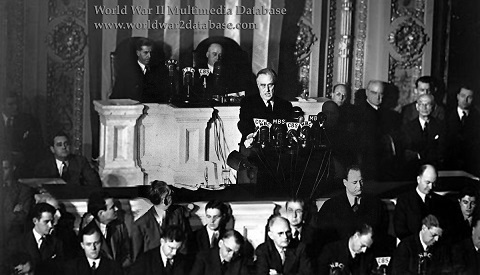



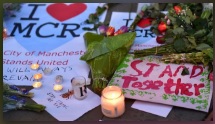







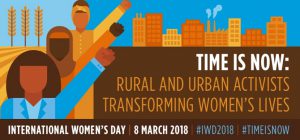 Can’t we all just get along?
Can’t we all just get along?